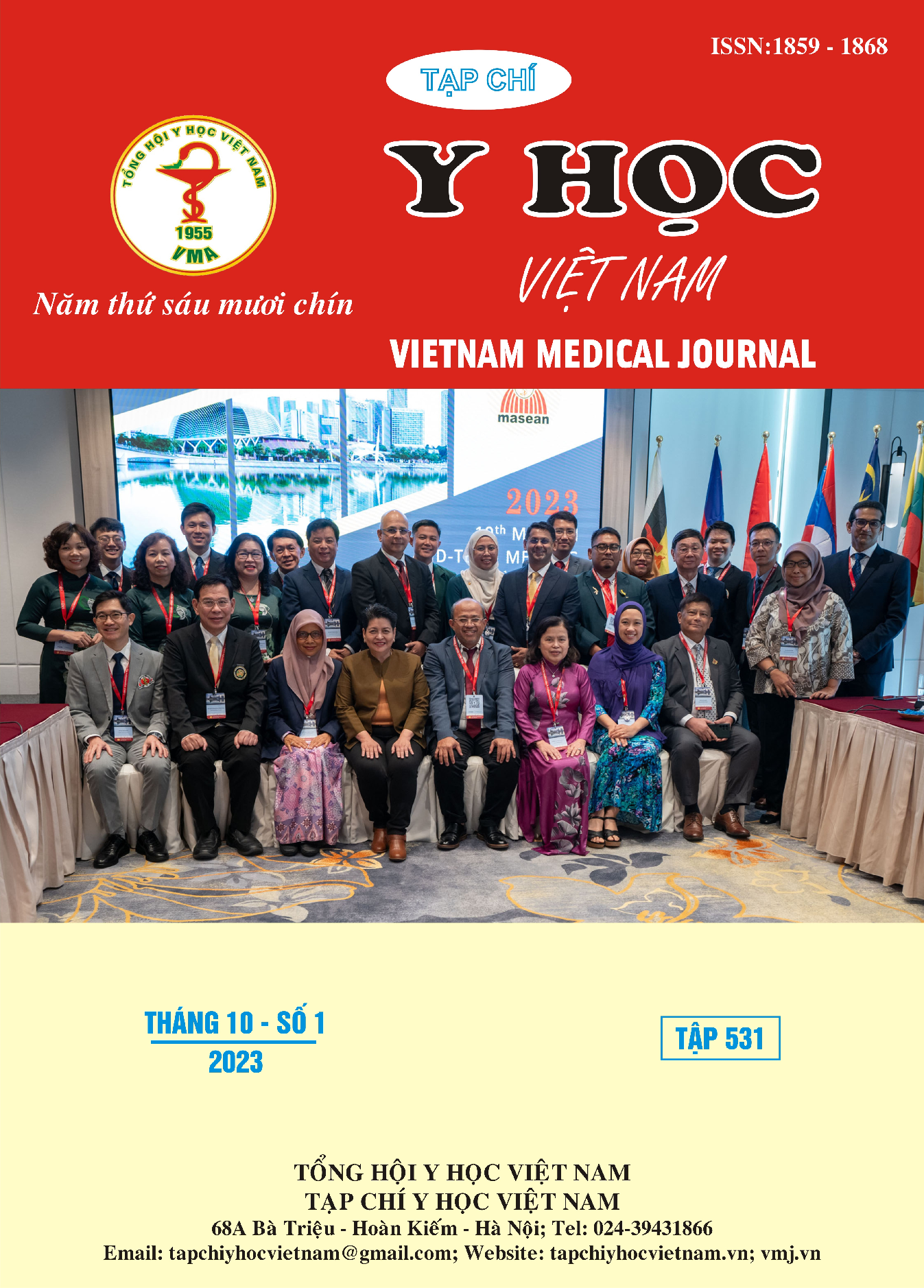EVALUATE THE EFFECTIVENESS OFEARLY REHABILITATION IN PATIENTS WITH SEVERE TRAUMATIC BRAIN INJURY
Main Article Content
Abstract
Objective: to assess the effectiveness of early rehabilitation in patients with severe traumatic brain injury. Methods The study was conducted on patients with severe traumatic brain injury who were treated at the Intensive Care Unit (ICU) department and continued their treatment at the Neurosurgery department of Viet Duc Hospital from May 2022 to May 2023. The patients underwent early rehabilitation and were evaluated at 1 and 3 months. Results: After 1 month and 3 months of treatment, the patients showed significant improvements in the level of consciousness (Glasgow Coma Scale), motor function based on the Fugl-Meyer Assessment (FMA), daily living activities, and disability status according to the Extended Rivermead Behavioural Inventory (ERBI). However, there was no improvement in spasticity as assessed by the Modified Ashworth Scale(MAS). There were no reports of side effects during the intervention. Conclusions: early rehabilitation in patients with severe traumatic brain injury help patients improve in the level of consciousness, motor function, daily living activities, and disability status, there was no improvement in spasticity.
Article Details
Keywords
Severe traumatic brain injury, early rehabilitation.
References
2. Hoffmann B, Düwecke C, von Wild KRH. Neurological and social long-term outcome after early rehabilitation following traumatic brain injury. 5-year report on 240 TBI patients. Acta Neurochir Suppl. 2002;79:33-35. doi: 10.1007/978-3-7091-6105-0_6
3. Kreitzer N, Rath K, Kurowski BG, et al. Rehabilitation Practices in Patients With Moderate and Severe Traumatic Brain Injury. J Head Trauma Rehabil. 2019;34(5):E66-E72. doi:10.1097/HTR.0000000000000477
4. Lưu Quang Thùy. Nghiên Cứu Vai Trò Doppler Xuyên Sọ Trong Xác Định Áp Lực Nội Sọ và Xử Trí Co Thắt Mạch Não ở Bệnh Nhân CTSN Nặng. Luận Án Tiến Sỹ Đại Học Y Hà Nội. 2016.
5. Enslin JMN, Rohlwink UK, Figaji A. Management of Spasticity After Traumatic Brain Injury in Children. Front Neurol. 2020;11:126. doi:10.3389/fneur.2020.00126
6. Fan M chao, Li S fang, Sun P, et al. Early Intensive Rehabilitation for Patients with Traumatic Brain Injury: A Prospective Pilot Trial. World Neurosurg. 2020;137:e183-e188. doi:10.1016/j.wneu.2020.01.113
7. Formisano R, Azicnuda E, Sefid MK, Zampolini M, Scarponi F, Avesani R. Early rehabilitation: benefits in patients with severe acquired brain injury. Neurol Sci. 2017;38(1):181-184. doi:10.1007/s10072-016-2724-5
8. Bartolo M, Bargellesi S, Castioni CA, et al. Early rehabilitation for severe acquired brain injury in intensive care unit: multicenter observational study. Eur J Phys Rehabil Med. 2016; 52(1):90-100.


